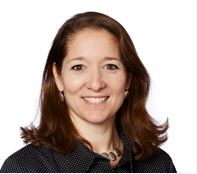 When you consider your career, it’s vital to get clear on what brings you joy, says Sarah Wolman.
When you consider your career, it’s vital to get clear on what brings you joy, says Sarah Wolman.
“You don’t have to choose between work that allows you to feel fulfilled and that would put food on the table,” she says, encouraging other new professionals to talk to people about what they do and ask good questions that help them understand how people spend their time. “Find out what will make you feel you’re making a meaningful contribution, and listen for those opportunities that mesh.”
And, she points out—it might take a whole career to find those. “Your career will be long, so the secret is to continue looking for those positions that combine what you’re good at with what you love,” she says, adding that this has been true of her own career. Each piece made sense after the last one.
Building on Opportunities Where She Found Them
Majoring in comparative literature and French and Italian, Wolman wrapped up the majority of her coursework early, which allowed her to take classes in the sociology department, delving into her interest in policies around women, children and families. She left with an interest in policy work and took a position with the Office of the Mayor of the City of New York as a policy analyst, which provided the perfect birds-eye view into a wide variety of programs that existed, and also illuminated needs.
While there, she realized that the professionals above her all had obtained law degrees, so she thought that might be the best route to become a decision-maker. She attended law school, harboring no expectations of practicing law, but rather to further her ability to focus on issues of equity and social justice.
During her first summer of law school, Wolman did a Human Rights fellowship. During her second summer, her work was again funded by her law school Wolman through a public interest law fellowship that allowed her to do socially conscious work with a nonprofit called Legal Outreach. She ran a five-week law school-like internship for eighth graders, not designed to create future lawyers but rather to help motivate the students toward college and careers in general. “I remain so proud of what the kids accomplished over the years; they worked so hard every day after school, every Saturday and every summer, and ultimately they achieved their goals.”
The following year she returned and took a year-long course with the organization’s Executive Director. During the fall, she learned Family Law and a teaching methodology, and then in the spring, she and the other law students taught law in eighth grade social studies classes in Harlem. She describes her first day teaching as nerve-wracking, and yet standing on the subway platform, she called her husband and announced she had missed her calling—she was supposed to be a teacher. From that time, she remained involved with the organization for more than 10 years, including full-time, part-time and volunteer roles.
Yet when law school graduation rolled around, there were other factors at play. Her husband was still in law school, and so she took a stint at a large, corporate law firm for two years. She found a way to make it work for her, mostly by taking on lots of pro bono work. “There are different times for different things, and at the time, I was the primary breadwinner. Fortunately the firm understood where my interests lay and allowed me time to focus on my pro-bono passion.”
From there, Wolman transitioned to the Administration for Children’s Services and led their Policy & Procedure unit, all the while volunteering at Legal Outreach and joking with the Executive Director about opening a Brooklyn Office. While on her first maternity leave, she got the call to do just that, and she spent the subsequent five years running the site. She then transitioned to part-time after her second maternity leave.
By the time she moved to the New Jersey suburbs, Wolman was ready to be back to full-time. She took a position as the President & CEO of a community-based non-profit, where she was close to home and able to juggle a full schedule. The organization offered counseling programs, domestic violence services, an early childhood center, and other social service programs. She decided to build on the successful Legal Outreach model and start a similar program that would align kids with professionals in law, business and science. She reached out to the Merck Company Foundation to provide science mentors and was thrilled they wanted to support all three aspects of the program.
Following her third and final maternity leave, she decided the demands of the CEO position were too high and instead turned to consulting work; one of her first stints was covering another professional’s maternity leave at the Merck Company Foundation as Manager of the Education grants Portfolio.
Merging her passion for education with a new love for philanthropy, she was recruited by the LEGO Foundation; the only potential deal breaker was that the position was in Switzerland. Encouraged by her husband they dove in, and she has been with the LEGO Foundation ever since, returning to New York four years ago.
Currently she is excited to be working on a program designed to bring play to the youngest refugees in Bangladesh, Lebanon and Jordan in connection with Sesame Workshop. “The LEGO Foundation exists thanks to the incredible generosity of its owner family, which dedicates 25% of all profits of the LEGO Group to the Foundation. With living donors, the onus is on us to make a case for why something is timely and relevant. Displacement is in many ways the moral crisis of our day, so it makes so much sense for the Foundation to get deeply involved in this space. This new effort is a huge statement to the world that anyone who is doing humanitarian work needs to think about young children and their need to play and learn. It’s been a total privilege to work on this project.”
Finding Your Path, No Matter How Winding
As she looks back on a varied and full career, Wolman says that she wishes that younger people would realize that there is a diverse and rich range of options in the professional world. “When I was in law school, we were presented with two options—working in a law firm or legal aid,” Wolman says. “But the world is a more interesting place than that. Those are great options for some but there are so many ways to use a law degree – and so many interesting careers that don’t require one. It never occurred to me that the side of me that loves to be creative and playful would be able to merge with my interest in program development and policy.” Wolman speaks and trains around the world on the connection between learning through play, often traveling with a suitcase full of LEGO bricks. “Sometimes I wish I could see the faces of the airport staff scanning my luggage.”
While Wolman feels like she has arrived at a gratifying point in her career, she sees that the workplace generally hasn’t quite caught up with women’s ambitions and needs. “Success in one industry or workplace is perceived as primarily linear; we think about progressing up a ladder, one rung at a time, but this perspective can be limiting for working moms,” Wolman says. First, the needs of your family and your own personal and professional needs become much more complex, which is why her personal philosophy has always been to make plans one year at a time. “Who’s got what kind of commute? What are the kids’ needs? I always try to be on the lookout for high-impact opportunities that allow me to meet whatever needs we have in any given year. But it’s difficult to find that flexibility and quality of life when you’re looking at careers in a linear way.”
She finds that women who press pause to have children and plan to jump back in at the same level may be doing themselves a disservice. “It’s easy to underestimate how you will feel when you come back in, and how you need to privilege certain parts of your life at certain times, but I believe most fields haven’t caught up to the idea that these needs will vary. The workplace is often not imaginative enough to appreciate the value of individual people and how to make things work for them quite yet.”
That’s where your own personal imagination has to kick in, much like Wolman’s has in building her own ideal career, brick by brick.

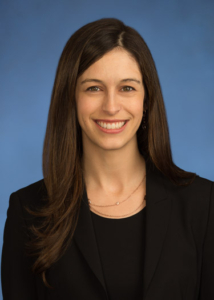 To progress in your career, you have to get out of your comfort zone, says Goldman Sachs’ Miriam Wheeler, who was recently named a partner at the firm – a role that will come into effect in the New Year.
To progress in your career, you have to get out of your comfort zone, says Goldman Sachs’ Miriam Wheeler, who was recently named a partner at the firm – a role that will come into effect in the New Year.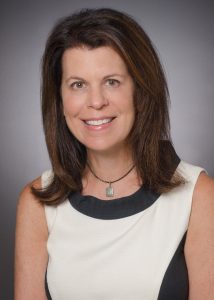 Advocate for yourself and know your value; don’t sell yourself short, Wendy Cohen advises associates.
Advocate for yourself and know your value; don’t sell yourself short, Wendy Cohen advises associates.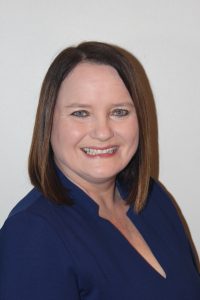 Having served in customer-facing roles for more than 20 years, WEX’s Clare Murphy has learned an important truth.
Having served in customer-facing roles for more than 20 years, WEX’s Clare Murphy has learned an important truth.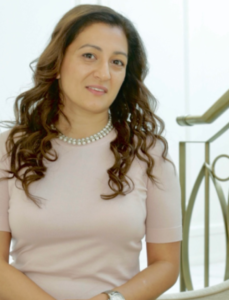 “My proudest achievement is that I have grown my entire career from grass roots level, with fearless determination.” says PwC’s Sunaina Kohli.
“My proudest achievement is that I have grown my entire career from grass roots level, with fearless determination.” says PwC’s Sunaina Kohli.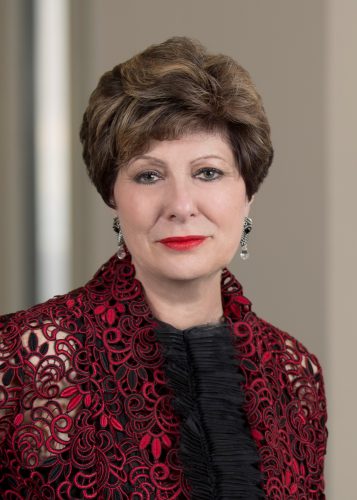 Have optimism and be proactive, Marci Eisenstein advises young women.
Have optimism and be proactive, Marci Eisenstein advises young women.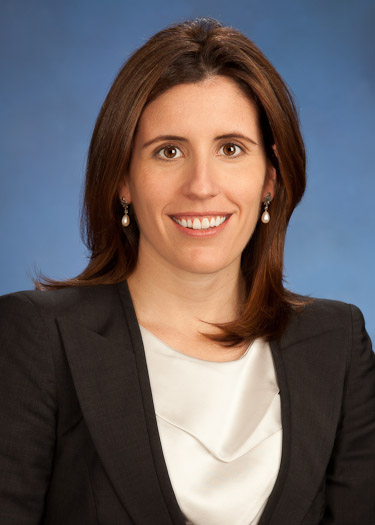 Given the sizable success that Goldman Sachs’
Given the sizable success that Goldman Sachs’ 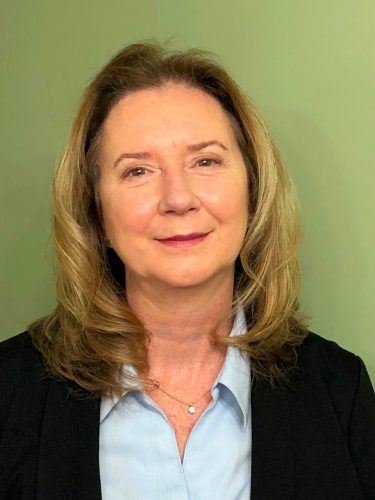 WEX’ Carolyn Fitzpatrick encourages professionals to accept offers of assistance with networking or career guidance because it’s offered as a gift….both to the giver and recipient.
WEX’ Carolyn Fitzpatrick encourages professionals to accept offers of assistance with networking or career guidance because it’s offered as a gift….both to the giver and recipient.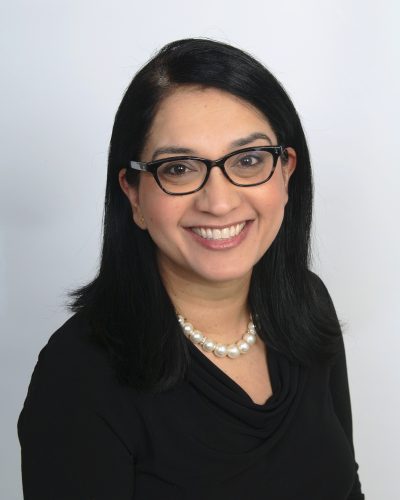 When Harp Rana’s daughter was younger, and they watched Scooby Doo together, she would say, “Be a Velma, not a Daphne, but don’t let Fred take all the credit.”
When Harp Rana’s daughter was younger, and they watched Scooby Doo together, she would say, “Be a Velma, not a Daphne, but don’t let Fred take all the credit.”